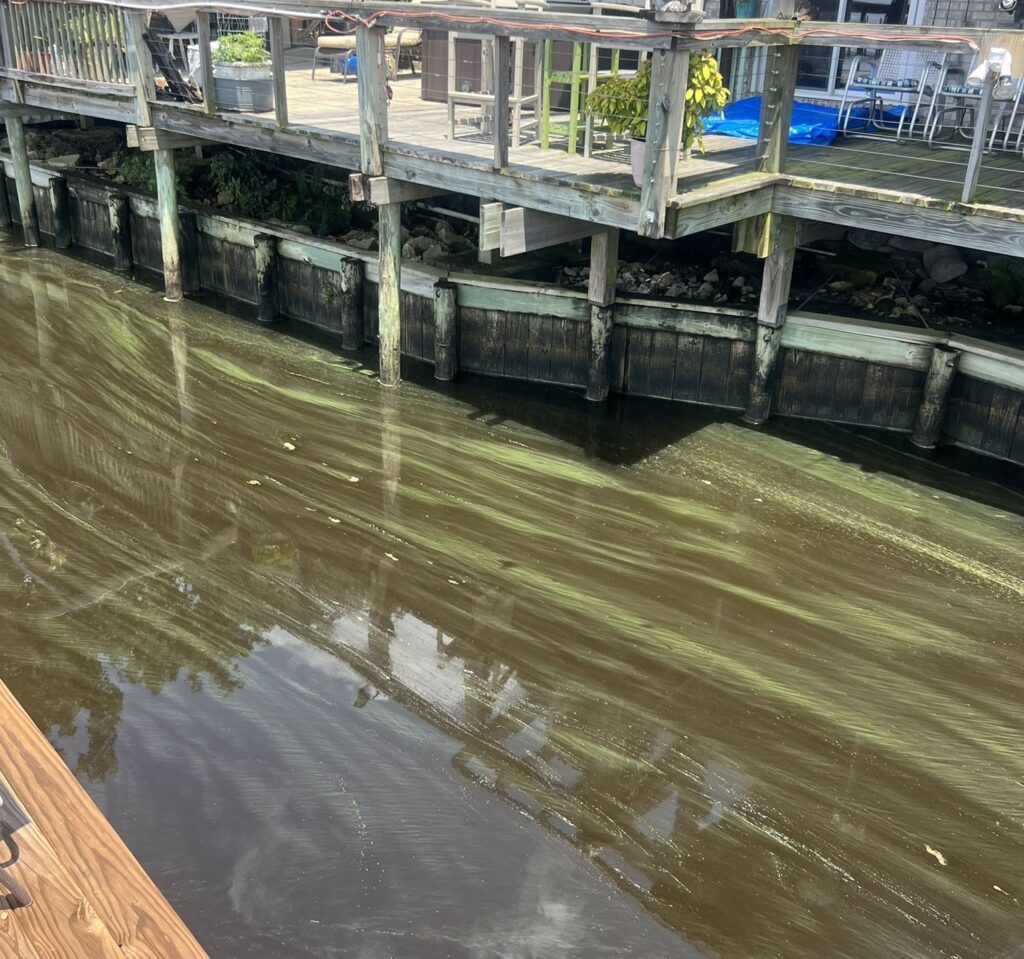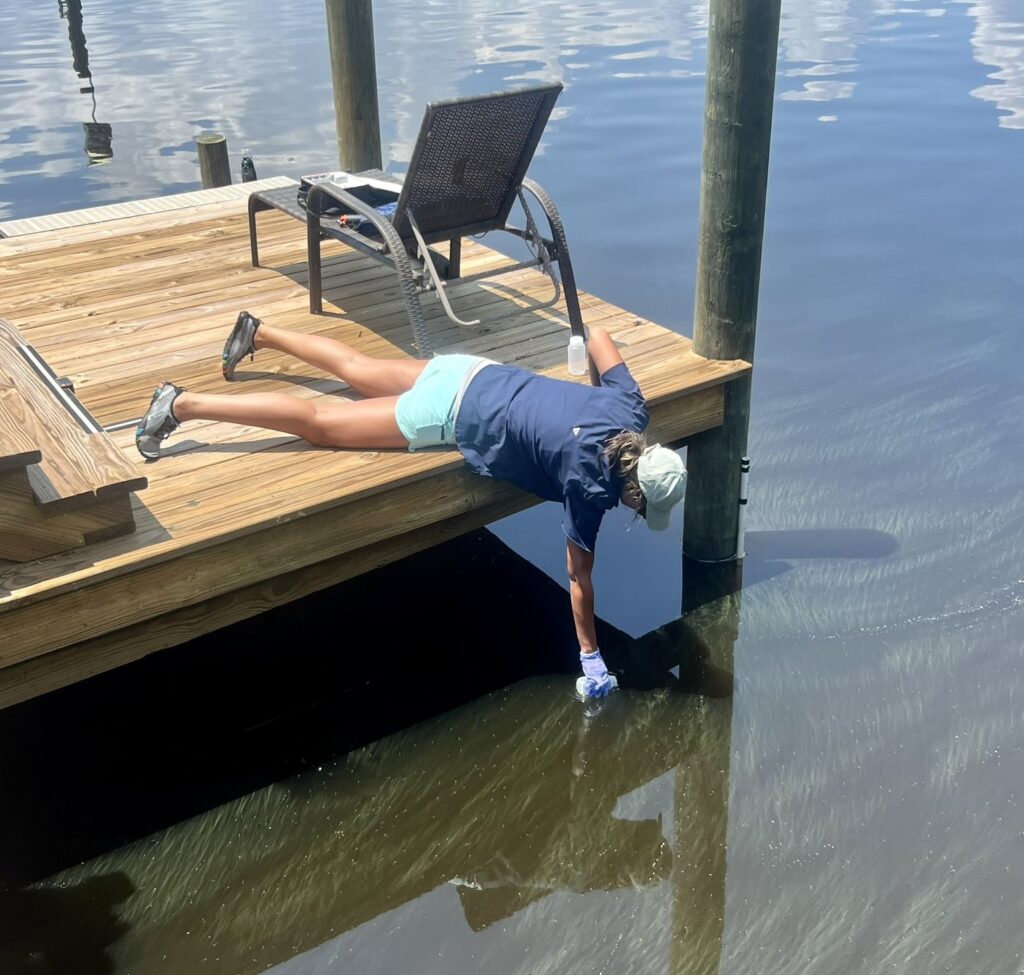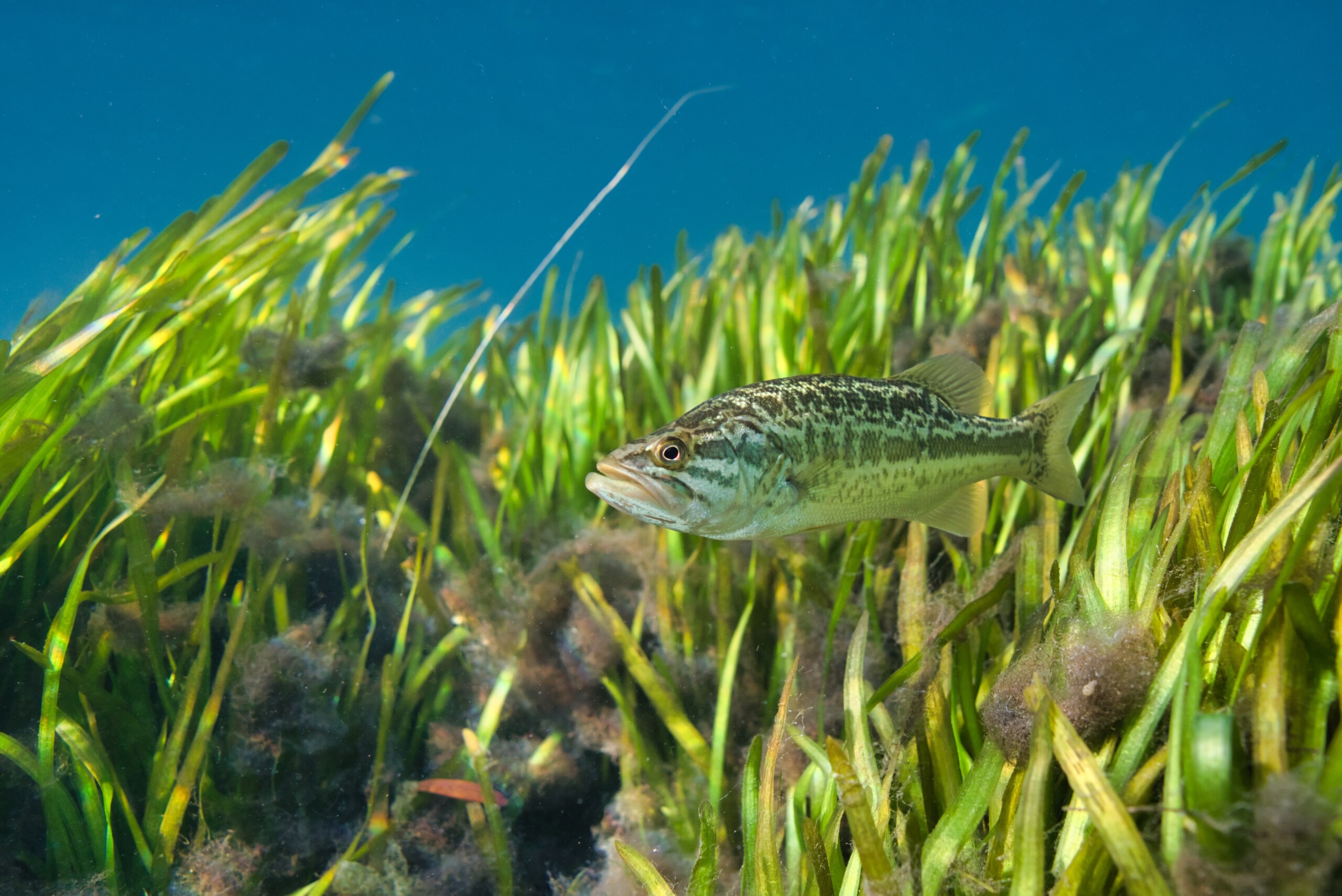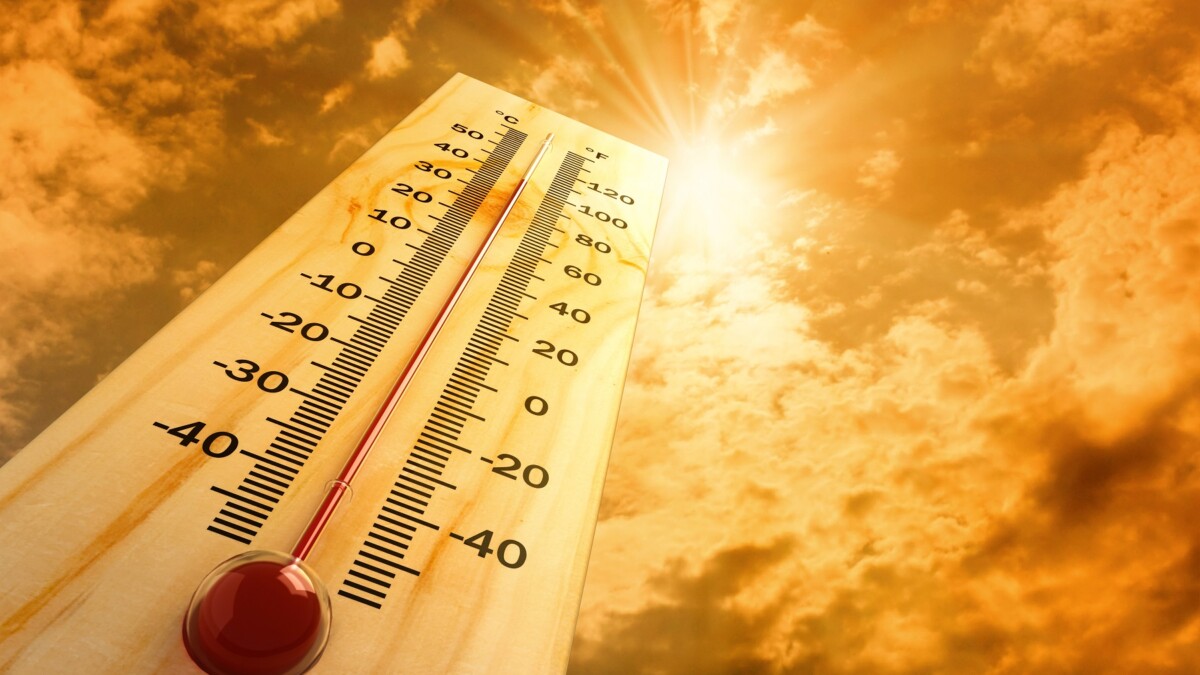The St. Johns Riverkeeper is back in the water this week along an 80-mile stretch of the St. Johns River studying river grasses that have been dying since Hurricane Irma in 2017.
Over four days, the Riverkeeper is surveying the river from Doctors Lake in Clay County to Lake George in Putnam County looking at grass beds, testing the water quality and looking for solutions to help restore the beds.
The Riverkeeper — a nonprofit that advocates for the health of the river — says the grasses are important because they provide filtration for the water, habitat for aquatic species, erosion protection and more. This is the second expedition of this study, which is part of a five-year plan to monitor this stretch of the river. The first expedition was in May.
Lisa Rinaman, the St. Johns Riverkeeper, discussed the trip during a stop Tuesday at Trout Creek Park in St. Johns County. She says the group was able to find thick and dense grasses in areas of Doctors Lake and around Fruit Cove and she hopes to find more during the week.
On the other hand, she says, the team did encounter blue-green algae during stops at Colee Cove and Tocoi along the river, preventing them from studying the grasses in those locations.
“The fact that these grasses have not come back has been of utmost concern, not only to us as river enthusiasts but also to fishermen and anglers throughout the watershed,” Rinaman says.


On the first leg of the study in May, there were no grasses found in Doctors Lake or around Fruit Cove, according to a report from the Riverkeeper. Overall the report states that the organization is disappointed in the abundance of grasses found at the 13 sites visited.
The report cites several factors that put stress on the ecosystem of the river and ultimately contribute to the health of the grasses. Those include lack of light penetration, salinity levels, poor water quality, extreme climatic events and grazing from aquatic species. The report says each factor plays a different role in the health of the grasses depending on location, species and whether the stress factors are compounded.
READ MORE: Full report from the May 2023 SAVe Our River’s Grasses report.
If you want to learn more about the threats to river grasses and possible solutions to save them, the Riverkeeper is hosting a community event at 6 p.m. Wednesday at Azalea Brewing in Downtown Palatka. Rinaman says the discussion will include efforts to conserve water and land, reduce nutrient pollution and reunite Silver Springs with the Ocklawaha River and St. Johns River.
“We can learn from one another, you know. We can read the scientific reports that the agencies put out, but we really also want to have a conversation with people that live and play and work on the St. Johns River every single day.” Rinaman says.
This week’s expedition lasts until Friday, and a report from the week will be available soon.
The next leg of this study is scheduled for October.







